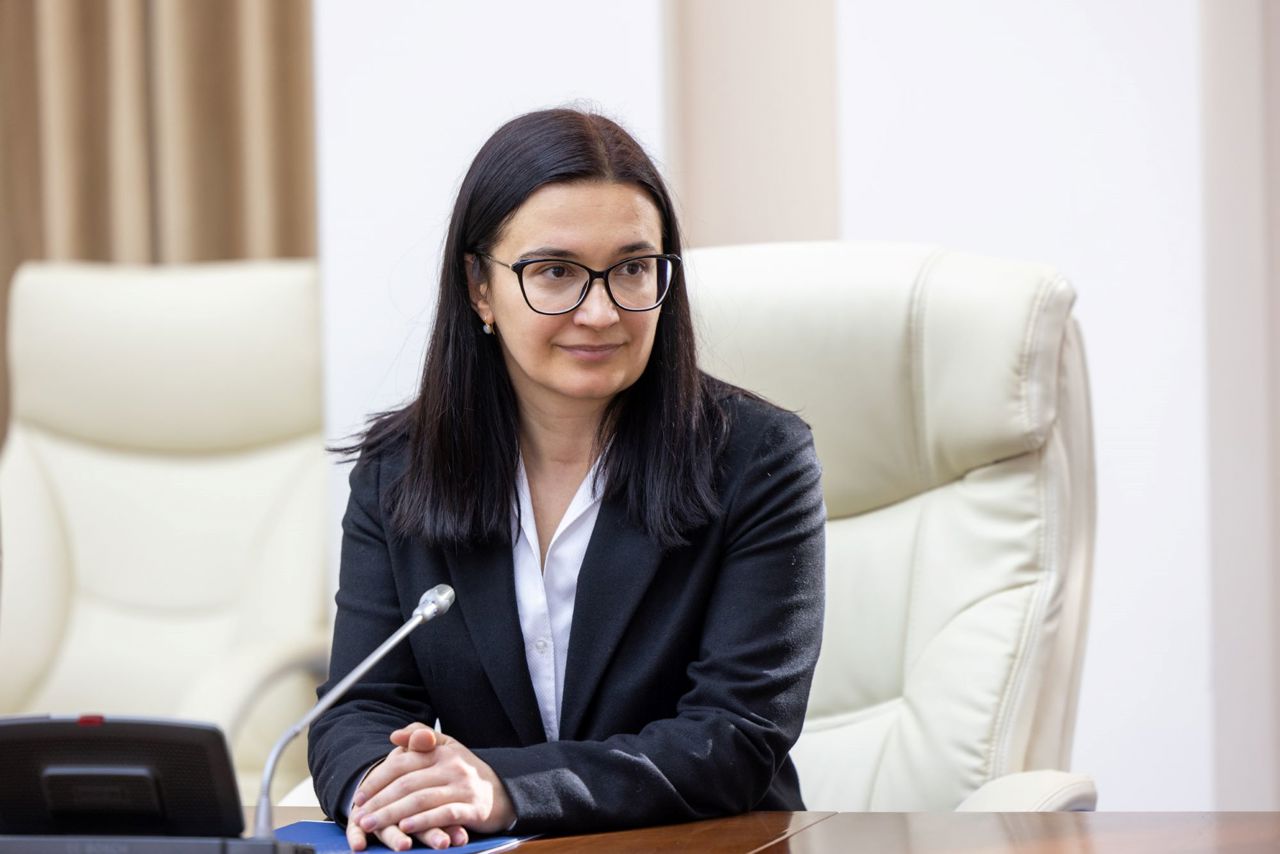
Deputy PM says Moldova's priority strengthening institutions, preparing for EU accession
Acting Deputy Prime Minister for European Integration Cristina Gherasimov, at a talk show broadcast on a private television channel, has said that Moldova must focus, in the coming years, on strengthening state institutions and technical preparedness for joining the European Union.
“Moldovans sent a quite clear message at the last elections, including at the referendum: we want a European path. This message was heard in Brussels,” Gherasimov said.
She noted that, at the European Council meeting in Brussels, the European Commission was set to publish the new enlargement package, which will assess the progress of Moldova and other candidate countries.
“I am sure that Moldova will once again show major successes, because a lot of work has been done. These results will be a strong argument for the effective opening of accession negotiations, alongside Ukraine,” Gherasimov emphasized.
Referring to discussions in the European Union on a possible “accelerated accession” of some candidate states, Gherasimov said that these were exploratory scenarios, not concrete decisions.
“There are more solutions analyzed – some propose rapid accession, but with limited rights in the first years, others consider reforming decision-making processes within the Union. However, for Moldova, these discussions are premature. No political decision on accession can be made until we prove that state institutions and the economy are ready according to the Copenhagen criteria,” she noted.
Cristina Gherasimov stressed that the Moldovan authorities must continue the deep transformation of institutions and the economy.
“We must focus all our efforts – in the government, parliament, and society – to be ready when the favorable political moment comes. Today, we have the support of the 27 EU member states, but this is not a given; it is the result of constant diplomatic work. It is essential to maintain our impeccable reputation and demonstrate that Moldova can deliver results, even with limited resources,” Gherasimov said.
In her opinion, the realistic goal for Moldova is signing the Accession Treaty in 2028, which would allow its ratification by 2030.
“Of course, the greatest uncertainty factor stays the geopolitical situation. The war on the border can accelerate or slow down certain processes at the European Union level. However, Moldova has proved resilience and the ability to advance even in difficult conditions,” the source noted.
Cristina Gherasimov also drew attention to the danger of disinformation and cyberattacks.
“Russia still has tools through which it can attempt to block Moldova's European path, including through disinformation and attacks on critical infrastructure. Therefore, we must strengthen our cybersecurity and firmly combat propaganda. Moldova is already part of more European programmes to protect democracy, and this shows that we are not alone – we are welcome in the European family,” Gherasimov added.
Action and Solidarity Party's candidate for parliament speaker office says Moldova to sign EU Accession Treaty by 2028
Igor Grosu, Alexandr Stoianoglo officially registered in race for Moldovan parliament speaker office
Deputy Prime Minister meets with British Parliament members
Moldova's Action and Solidarity Party creates parliamentary majority; five factions declare themselves in opposition
MEP after formation of new parliament: We are ready to support Chișinău MPs in EU accession process
Parliamentary factions present priorities: PAS, PSRM, PCRM, Alternative and Home Democracy Party officially establish factions
Constitutional Court President: Your mandate - direct expression of people's will, your mission - one of great dignity and responsibility
Parliamentary factions formed
12th Legislature Parliament established
Energy minister says Moldova achieved deep transformation of energy sector in several years
Nicolae Testemitanu Medical University of Moldova awards honorary title of Doctor Honoris Causa to professor, president of Romania's National Council of Rectors
Moldova strengthens international cooperation in agriculture sector, enhances visibility globally
New road bridge across Prut River, between Bumbata and Leova: Memorandum approved by Romanian government
Moldovan national energy regulator analyzes market impact in Moldova of U.S. sanctions on Russian oil companies
Judges, prosecutors of Moldova trained in environmental cases' investigation
Adrian Balutel steps down as head of Moldovan president's office to serve as member of new parliament
PHOTO GALLERY // Nicolae Testemitanu Medical University of Moldova marks eight decades of work
Moldovan parliament speaker, UK, Northern Ireland MPs discuss bilateral cooperation
Forty young people from India arrive in Chisinau to continue studies at universities of Moldova
VIDEO // Moldova on agenda of European Council; Romanian president says EU accession process to be discussed
Nicolae Testemitanu Medical University of Moldova marks 80th anniversary of work; Moldovan president says University presently valued not only in Moldova, but also far beyond its borders
Moldova accelerates agricultural integration into European Union: major progress in legislative harmonization and modernization of key sectors
Raids take place in more locations across Moldova in corruption file related to amnesty process
Speaker: Territorial-administrative reform must ensure services are as close to people as possible
Moldova's agriculture enters new stage of modernization through digitalization, innovation, institutional reforms

